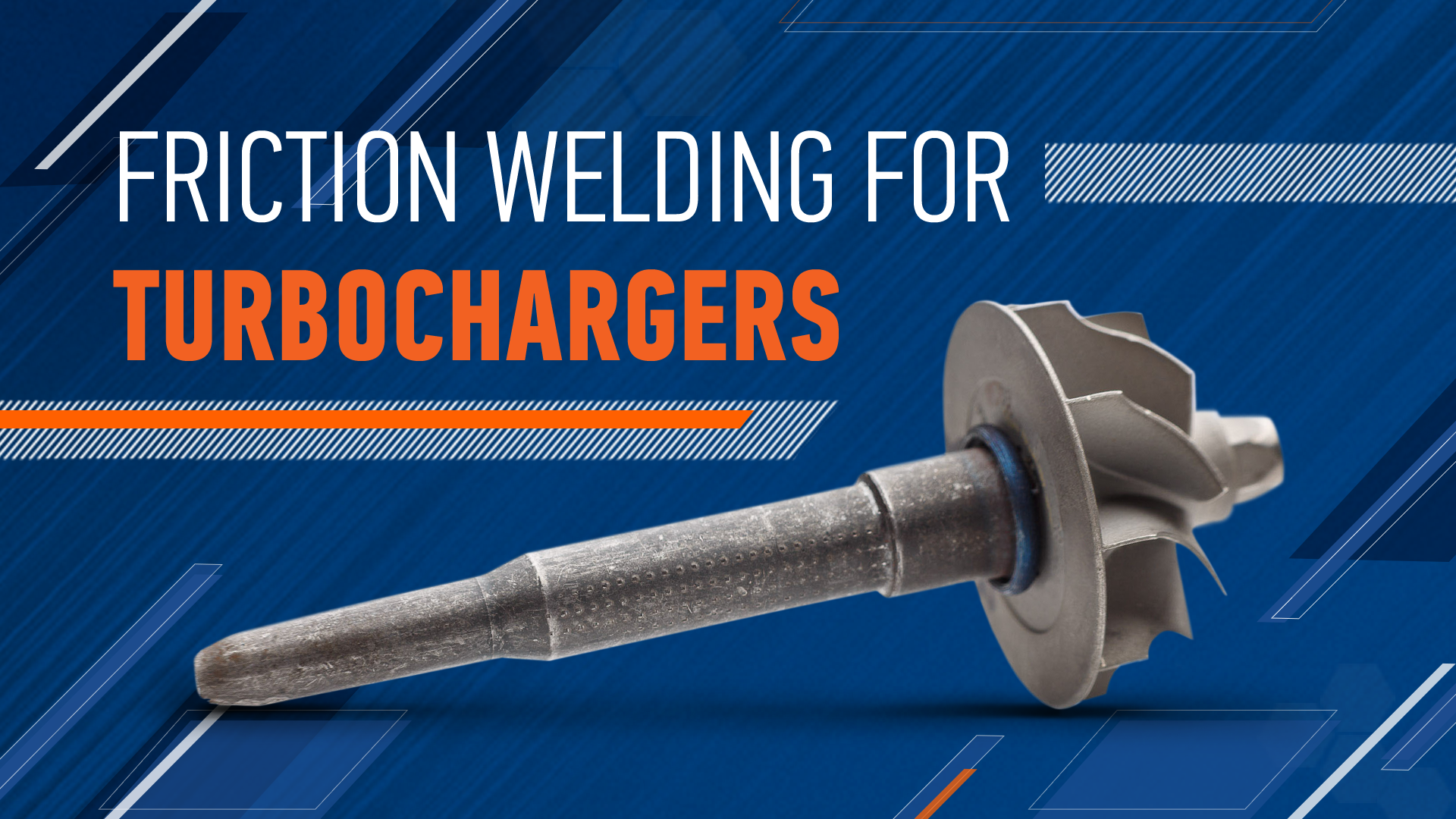
The Automotive industry is no stranger to friction welding. Within an Automotive vehicle’s internal combustion engine lies around 2,400 parts that must work together to get us from point A to point B, and friction welding is used to join many of those parts! One of those parts is the Turbocharger.
Turbochargers are a vital component for automotive vehicles, providing a significant boost in power and performance and enables engines to be smaller and more fuel-efficient. As a key component, its important turbochargers are manufactured with quality, durability, and repeatability in mind.
Why Friction Welding?
While there are a few joining techniques that can be used to join turbochargers, the top choice is friction welding for its exceptional joint strength and reliability.
Take a more traditional method such as MIG or TIG welding, which are also used to join turbochargers. These are fusion processes that will introduce higher heat and possible contamination to the material being joined, which poses a risk to the material’s mechanical properties. Friction welding is a solid-state joining technique where melting never occurs, which means the materials keep all if not most of their mechanical properties.
So, what are the benefits of Friction Welding for Turbochargers?
1. Joining bimetallics / dissimilar materials – Friction welding has the broadest capabilities for joining dissimilar materials with the same high-strength bond you’d come to expect. Typically, turbochargers are made from two different metals, take Steel and Inconel as an example. Steel is an ideal choice for the turbocharger shafts as it needs to be Hardenable and wear-resistant. Inconel can be used for the wheel for its heat-resistance and high-strength. This allows you to save on material costs by using Steel where Inconel (or another expensive material) isn’t required.
2. Superior joint strength & part repeatability – Friction welding creates a solid-state bond of forged-quality for the optimal joint strength. And, because the friction welding process is machine-controlled with pre-determined parameters, each part is made consistently without operator error.
3. Improved fatigue resistance – Friction welding produces welds with excellent fatigue resistance which is particularly advantageous for turbochargers as they experience high cyclic loads and vibrations, ensuring durability and reliability.
4. Pre and post-weld processing – Most turbochargers require post-weld heat treating as they are made from Hardenable materials which requires higher energy input to make a higher strength weld joint. The friction welding process allows for careful variations of the energy input and cooling rates optimizing the integrity of the final weld joint.
Why MTI?
MTI has been a trusted producer of automotive components for nearly 100 years – our extensive experience, dedication to quality, and industry know-how make us the right solution for you. Additionally, MTI has the widest range of Rotary friction welding technologies including Direct Drive and Inertia, both of which are excellent choices for joining turbochargers. We have a global footprint with contract welding services in the U.S. and the U.K., equipped with extensive tooling and machinery for turbochargers.
Is your company moving towards developing electric vehicles? Let our contract welding teams handle your internal combustion engine parts while you focus on the future.
Let’s Get Started
Do you have an application that needs joining? Ready to learn more about friction welding and how MTI can help? Contact us!
MTI US LinkedIn: https://www.linkedin.com/company/manufacturing-technology-inc
MTI UK LinkedIn: https://www.linkedin.com/company/mti-welding-technologies-ltd
YouTube: https://www.youtube.com/c/ManufacturingTechnologyIncMTIJoiningSolutions/videos
